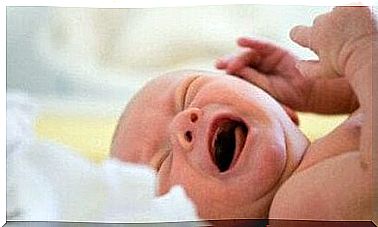What Is Colostrum? – Being Parents

The Colostrum is a yellowish liquid secreted by the breasts of the woman a few months before and several days after delivery. It is a component with a high protein and mineral content.
Its production takes place because the mammary glands are preparing to produce milk. This will be the exclusive food of the baby during his first months of life.
Although there are women who start producing it during the last months of pregnancy, don’t worry if you don’t. This phenomenon will then take place when your baby is born.
At first you will only see a few drops of colostrum. Don’t worry: the baby doesn’t need more than this because his body is just starting to function. In addition, its nutrient concentration is very high. It is therefore a very effective food.
The benefits of colostrum
This food is very important for the baby during his first days of life. Along with the breast milk that it will ingest later, it forms the basis of the nutrition necessary for this stage of life.
Here are the essential contributions of colostrum for the body:
- It is an exceptional source of vitamins, minerals and calories. Almost all the nutrients the baby needs are highly concentrated there.
- It provides protection against diseases.
- Colostrum stimulates the first stool, called meconium. These are dark green stools made up of epithelial cells from the intestines, water, lanugo, amniotic fluid, and bile.
“The nutrient concentration of colostrum is very high. It is therefore a very effective food ”
5 frequently asked questions about colostrum
1. When should it be given to the baby?
Usually the baby will feed on colostrum for the first 48 to 72 hours of life. If the delivery took place by caesarean section, this period may be extended by a few more hours.
2. When does colostrum production start?
Colostrum begins to develop from the second trimester of pregnancy. From this point on, the woman may notice that her clothes are stained with small amounts of yellowish liquid. This is colostrum.
Nevertheless, most women perceive it in the last days of pregnancy or even after birth. In either case, it is a completely natural process.

3. When is breast milk produced?
From the third day of the baby’s life, the woman will observe that the colostrum increases significantly. Indeed, this is due to the fact that the stimulation of the nursing child generates the beginning of the production of breast milk. From now on, it will be the main source of food for the baby.
4. What is the color of colostrum?
Due to its high beta-carotene content, it has a yellowish and even orange tint. If, on the other hand, you notice a pinkish or brown color, it means that it can be mixed with the blood of the mammary ducts. Do not worry. But it is always better to consult a doctor to dispel all kinds of doubts and risks.
5. How much colostrum should be given to a baby?
During the first days of life, the feeding of the newborn must be done according to the signs of hunger that it manifests. Why ? There are two main reasons. First of all, because it causes the woman’s body to be adequately stimulated to produce breast milk.
Then, it should be considered that the nutritional needs of the little one are not excessive during the first days. They form the basis for its growth and development. Especially when it comes to the immune system .

What is found in colostrum?
As we said before, it is an essential source of nutrients for the baby at the beginning of his life. Here are, among many others, the essential components of colostrum:
- Amino acids: fundamental for cell metabolism.
- Immunoglobulins: they help defend the body against infections and threats.
- Vitamins: They help the metabolism to regulate the levels of proteins, fats and carbohydrates.
- Cytokines: These contain antivirals and help build joints.
- Leukocytes: they contribute to the immune system.
In addition, colostrum contains many other essential elements for the various functions of the body. Among them are the factors of growth and immunity.
Finally, it is evident that colostrum, although it is produced in limited quantities, fulfills a central role in the growth of a newborn baby. Indeed, it is important to reiterate once again the relevance of breastfeeding early in life.









